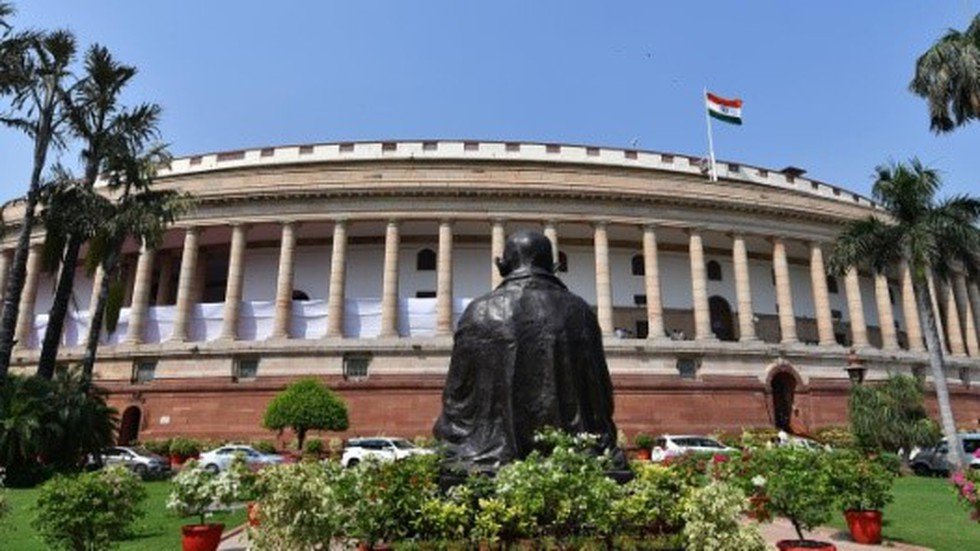
Surrogacy in India & Surrogacy Regulation Act, 2021
Subscribers of "Current Affairs" course can Download Daily Current Affairs in PDF/DOC
Subscribe to Never Miss an Important Update! Assured Discounts on New Products!
Must Join PMF IAS Telegram Channel & PMF IAS History Telegram Channel
- Context: (TH): The High Court of Delhi observed that surrogacy should not be encouraged in India.
- The court was hearing a plea by an Indian-origin couple living in Canada, challenging the Centre’s notification amending the Surrogacy (Regulation) Act 2021 to ban donor surrogacy (disallow surrogacy with the help of donor sperm or eggs).
What is Surrogacy?
- Surrogacy is an arrangement where a woman (the surrogate) carries and gives birth to a child for another individual or couple who are unable to conceive or carry a pregnancy of themselves.
- Surrogacy can be classified into altruistic and commercial.
- Altruistic surrogacy entails no financial compensation for the surrogate.
- Commercial surrogacy involves paying the surrogate for bearing the child, implying a profit.
Key Provisions of Surrogacy Regulation Act, 2021
- As per the act, an “intending couple” is an Indian infertile married couple (the age of the woman being 23 to 50 years and the age of the man being 26 to 55 years).
- The couple must not have any living children in order to receive a certificate of eligibility for surrogacy (biological, adopted, or surrogate).
- The only circumstances in which this clause would not apply is if their surviving child has a disability, either mental or physical, or if the child has a condition that poses a serious risk of death.
- Any willing, ever-married woman between the ages of 25 and 35 who has her own child may become a surrogate.
- A surrogate is prohibited from providing her own gametes for surrogacy by the Act.
- A surrogate must not receive any compensation for carrying the child in her womb other than the necessary insurance and medical costs.
- The Act also permits Indian widows, divorcees, and married couples of Indian origin living abroad to become parents through altruistic surrogacy (this provision was amended in March 2023).
- People who are not allowed to use the services of surrogacy are:
- Couples with one child,
- Foreign nationals,
- In-residence partners or people in “live-in relationships”,
- Single men and women,
- Gay and lesbian couples, and
- Widowers
Key Issues
- Lack of Comprehensive Regulations: Concerns about lack of legal protection for both parties involved, and potential loopholes.
- Exploitation of Surrogates: Concerns arose about their health or whether they were adequately compensated for their basic health needs.
- Commercialization: The commercialization of surrogacy raised ethical questions about treating childbirth as a transactional service.
- It brought up concerns about the commodification of women’s bodies and whether financial motives were overriding ethical considerations.
- Lack of Legal Clarity: Ambiguity in laws regarding parentage, citizenship, and rights of the child born through surrogacy created uncertainties for intended parents, surrogates, and the children.
- The absence of clear laws makes it challenging to address disputes or protect the rights of all parties.
- Foreigners and Surrogacy Tourism: India was previously a popular destination for foreigners seeking surrogacy due to its comparatively affordable services.
- However, concerns emerged about the exploitation of Indian surrogates and issues related to citizenship and parentage for the children born to foreign parents.
Solutions
- Regulate surrogacy agencies and ensure they adhere to ethical practices, including fair compensation, medical care, and support for surrogates.
- Ensure informed consent and comprehensive counseling for all parties involved, emphasizing the emotional, physical, and legal implications of surrogacy.
- Encourage altruistic surrogacy where surrogates are motivated by a desire to help others rather than financial gain.
- Provide comprehensive healthcare and support services for surrogates throughout the pregnancy and postpartum period.
- Establish clear laws regarding parental rights, citizenship, and responsibilities from the outset of the surrogacy arrangement to avoid legal ambiguities.
- Establish regulatory bodies or agencies to monitor and oversee surrogacy arrangements, ensuring compliance with established laws and ethical guidelines.
- Alternative options: Promote and support other family-building options such as adoption, fostering, or alternative assisted reproductive technologies for individuals or couples unable to conceive.





![PMF IAS Environment for UPSC 2022-23 [paperback] PMF IAS [Nov 30, 2021]…](https://pmfias.b-cdn.net/wp-content/uploads/2024/04/pmfiasenvironmentforupsc2022-23paperbackpmfiasnov302021.jpg)









